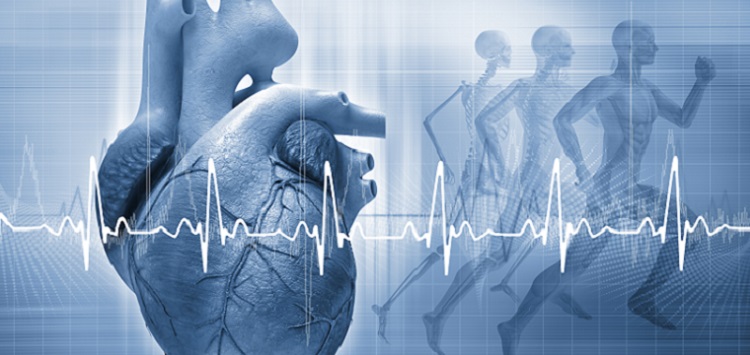The mind-heart connection through Cardiology care
The mind-heart connection through Cardiology care
Blog Article
Recognizing the Relevance of Cardiology in Modern Medical Care Services
Cardiology plays an essential function in contemporary health care, particularly as heart condition remains to be the leading root cause of mortality worldwide. Breakthroughs in diagnostics and therapy have actually transformed person treatment, enabling earlier treatments and improved end results. The shift in the direction of preventive cardiology empowers people to manage their health proactively. As technology proceeds to progress, the integration of cutting-edge remedies might even more redefine cardiology's influence on public wellness, motivating a more detailed assessment of emerging trends and their implications.
The Occurrence of Cardiovascular Disease and Its Effect on Public Wellness
Although heart condition remains the leading cause of death globally, its influence extends far beyond private patients to affect public health systems and economies. The high occurrence of cardiovascular disease positions a significant stress on health care resources, requiring enhanced funding for therapy, recovery, and avoidance programs. Public health and wellness initiatives have to attend to threat factors such as weight problems, smoking cigarettes, and less active lifestyles, which add considerably to the increasing occurrence of heart conditions.Moreover, the financial burden associated with heart problem is immense, incorporating not just straight clinical prices yet also indirect costs related to lost performance and premature mortality. Areas face difficulties in managing these costs, commonly bring about variations in medical care access and end results. As the populace ages and lifestyle-related threats remain to rise, the necessity for reliable cardiology interventions comes to be paramount. Addressing heart disease is not only an issue of private wellness however also a crucial public health top priority.
Breakthroughs in Heart Diagnostics and Imaging Techniques
Recent advancements in cardiac diagnostics and imaging methods have changed the area of cardiology, improving the capacity to keep track of and identify heart problem. Techniques such as heart MRI, CT angiography, and echocardiography have become increasingly sophisticated, supplying comprehensive photos of cardiac frameworks and features. These techniques permit the early identification of problems like coronary artery disease, cardiac arrest, and valvular disorders.Moreover, advancements in non-invasive diagnostics, such as wearable innovation and remote surveillance gadgets, have empowered people and medical care suppliers. These tools help with real-time monitoring of heart rhythms and various other essential indications, causing prompt interventions. Additionally, man-made intelligence is being integrated into imaging evaluation, boosting precision and effectiveness in diagnosis.
Developments in Therapy Choices for Heart Conditions
Current advancements in cardiology have caused considerable developments in treatment choices for heart disease. These include innovative medical methods that improve step-by-step outcomes and arising medicines that supply brand-new opportunities for treatment. As the area advances, these technologies play an important function in boosting patient treatment and results.
Advanced Surgical Techniques
Technologies in surgical strategies have actually transformed the landscape of cardiology, using new hope for people with heart disease. Minimally intrusive treatments, such as catheter-based treatments, have substantially reduced recuperation times and medical facility keeps. Strategies like robotic-assisted surgery boost accuracy, enabling cosmetic surgeons to browse intricate anatomical structures with greater accuracy. Innovations in imaging innovation promote real-time visualization during treatments, enhancing results. Transcatheter aortic shutoff substitute (TAVR) exhibits an advancement in treating aortic stenosis, making it possible for valve substitute without open-heart surgery. Furthermore, hybrid strategies that integrate surgical and catheter-based techniques give tailored options for different cardiac issues. These sophisticated surgical strategies not only enhance individual safety but also expand treatment alternatives, emphasizing the important role of innovation in modern cardiology techniques.
Emerging Medicines and Therapies
As the landscape of cardiology remains to develop, emerging therapies and medications play a crucial role in improving treatment choices for heart disease. Advancements such as novel anticoagulants and progressed lipid-lowering agents have transformed the management of cardiovascular illness, greatly reducing individual morbidity and death. Furthermore, the growth of gene therapies and regenerative medicine offers appealing avenues for dealing with conditions previously deemed irreversible. Professional trials are consistently exposing the efficacy of these treatments, pushing the borders of traditional therapies. The assimilation of digital health and wellness innovations assists in personalized medicine, allowing for customized treatment plans based on genetic and way of life factors. Collectively, these innovations emphasize the vibrant nature of cardiology, boosting person results and redefining criteria of treatment in modern medical care.
The Function of Preventive Cardiology in Patient Care
Preventive cardiology plays an important role in person treatment by concentrating on the recognition of danger elements that add to heart condition. With way of life adjustment strategies and very early detection techniques, doctor can successfully lower the incidence of cardio events - Cardiology. This positive technique not only boosts individual outcomes however also promotes lasting health and wellness
Risk Variable Identification
While heart diseases remain a leading source of morbidity and death worldwide, effective threat aspect recognition works as a keystone of preventive cardiology. Determining danger factors such as hypertension, household, diabetes mellitus, and hyperlipidemia history is essential for very early intervention. Medical care specialists use different evaluating techniques to evaluate these variables, permitting for customized precautionary procedures. In addition, comprehending a patient's way of living choices, such as smoking cigarettes and physical lack of exercise, even more educates threat assessments. This complete analysis makes it possible for medical professionals to develop individualized treatment strategies targeted at mitigating threats. By focusing on danger element recognition, medical care systems can boost patient end results and minimize the overall burden of heart diseases, ultimately adding to boosted public health approaches and resource allotment.
Lifestyle Modification Approaches
A plethora of studies highlights the critical function of way of living modification methods in reducing heart disease threat. These approaches include dietary modifications, increased exercise, cigarette smoking cessation, and weight monitoring. By embracing a heart-healthy diet abundant in fruits, vegetables, entire grains, and lean healthy proteins, individuals can decrease cholesterol levels and high blood pressure. Normal physical task strengthens the heart and enhances general cardiovascular health. In addition, stopping smoking cigarettes significantly decreases the threat check over here of cardiovascular disease and boosts recuperation prices for those Source with present conditions. Weight monitoring better adds to cardio health and wellness by alleviating other danger aspects such as diabetic issues and high blood pressure. Carrying out these way of living transforms not just advertises individual wellness yet likewise works as a cornerstone of precautionary cardiology in patient care.
Very Early Discovery Strategies
Way of living alterations significantly add to decreasing cardio disease risks, but they are most reliable when coupled with very early discovery strategies. Precautionary cardiology stresses the significance of recognizing potential heart concerns before they escalate into serious conditions. Strategies such as blood stress monitoring, cholesterol screening, and progressed imaging modern technologies like echocardiograms play vital functions in examining cardio wellness. Biomarkers and genetic screening likewise improve the precision of very early detection, permitting customized preventive techniques. Routine cardiac danger examinations equip health care companies to intervene proactively, possibly avoiding cardiac arrest and strokes (Dr Garcia). By incorporating these very early discovery techniques right into regular treatment, people can take advantage of timely way of living treatments and targeted treatments, ultimately enhancing and boosting outcomes lifestyle
Integrating Modern Technology Into Cardiology Practices
As improvements in modern technology continue to improve different fields, the combination of cutting-edge devices and systems right into cardiology methods has ended up being essential for boosting person treatment and results. Telemedicine systems allow cardiologists to monitor clients remotely, boosting access to care while lowering the problem on healthcare centers. Wearable devices, such as smartwatches, enable continuous heart price surveillance, alerting both people and medical professionals to prospective problems in real-time. In addition, artificial knowledge (AI) is being utilized to assess vast quantities of heart information, aiding in early diagnosis and individualized treatment plans. Advanced imaging methods, consisting of 3D echocardiography, boost visualization of heart frameworks, causing a lot more exact interventions. Digital health documents (EHRs) streamline person information management, ensuring that cardiologists have immediate access to critical information. Together, these technical advancements are transforming cardiology, promoting aggressive administration and boosted health and wellness end results for people with cardio conditions.
The Value of Client Education and Engagement
Client education and learning and involvement play a crucial role in the administration of cardiovascular wellness. By furnishing clients with expertise about their conditions, therapy alternatives, and way of living modifications, doctor equip people to take an energetic function in their treatment. This positive strategy can cause enhanced adherence to prescribed drugs, nutritional adjustments, and exercise routines, inevitably reducing the threat of complications.Engagement likewise fosters a strong patient-provider relationship, motivating open communication and depend on. When clients feel notified and involved, they are more likely to voice worries and ask inquiries, which can read the article result in much better scientific results. Furthermore, academic sources, such as workshops or electronic systems, can improve understanding and promote self-management strategies. On the whole, prioritizing individual education and learning and engagement is crucial for enhancing cardiovascular wellness, boosting lifestyle, and decreasing medical care expenses related to cardiovascular diseases.
Future Trends in Cardiology and Their Potential Influence

Regularly Asked Questions
What Way Of Life Changes Can Decrease Heart Problem Threat?
The existing concern addresses lifestyle changes that can considerably reduce heart problem risk. Cardiologist near me. Embracing a balanced diet plan, participating in normal physical task, maintaining a healthy and balanced weight, handling stress, and preventing tobacco can notably enhance cardio health and wellness
How Can I Identify Very Early Signs of Heart Issues?
Acknowledging early indicators of heart troubles entails monitoring signs and symptoms such as breast discomfort, lack of breath, fatigue, and uneven heart beat. Timely recognition of these indications can trigger essential clinical examination and treatment for far better outcomes.
What Are the Differences In Between Cardiologists and Heart Surgeons?
The distinctions in between cardiologists and cardiac surgeons lie in their duties; cardiologists mostly identify and manage heart conditions through non-invasive approaches, while heart cosmetic surgeons perform surgeries to correct structural heart issues. Each plays a crucial, unique duty.

Exactly how Typically Should I Get My Heart Health And Wellness Checked?
The regularity of heart wellness checks differs based upon specific risk variables. Usually, grownups need to undertake analyses every one to 2 years, while those with status quo might need more frequent assessments as advised by health care specialists.
What Duty Does Genetics Play in Heart Illness Threat?
Genetics substantially affects heart problem risk, with familial patterns indicating inherited problems. Details genetics can incline individuals to hypertension, cholesterol problems, and other cardiovascular troubles, highlighting the significance of hereditary screening in reviewing heart wellness. Heart disease continues to be the leading reason of fatality internationally, its effect prolongs far past private clients to impact public health systems and economic situations. Public health and wellness efforts must resolve danger aspects such as excessive weight, cigarette smoking, and inactive lifestyles, which add substantially to the increasing occurrence of heart conditions.Moreover, the economic concern associated with heart illness is enormous, incorporating not only direct medical expenses however additionally indirect expenditures connected to shed efficiency and premature death. Preventive cardiology plays an essential duty in patient treatment by concentrating on the identification of risk variables that add to heart disease. Synthetic knowledge (AI) and device understanding are boosting diagnostics and individual tracking, allowing early discovery of heart conditions. The differences in between cardiologists and heart surgeons lie in their functions; cardiologists primarily identify and handle heart problems with non-invasive techniques, while cardiac cosmetic surgeons execute surgical treatments to fix architectural heart problems.
Report this page